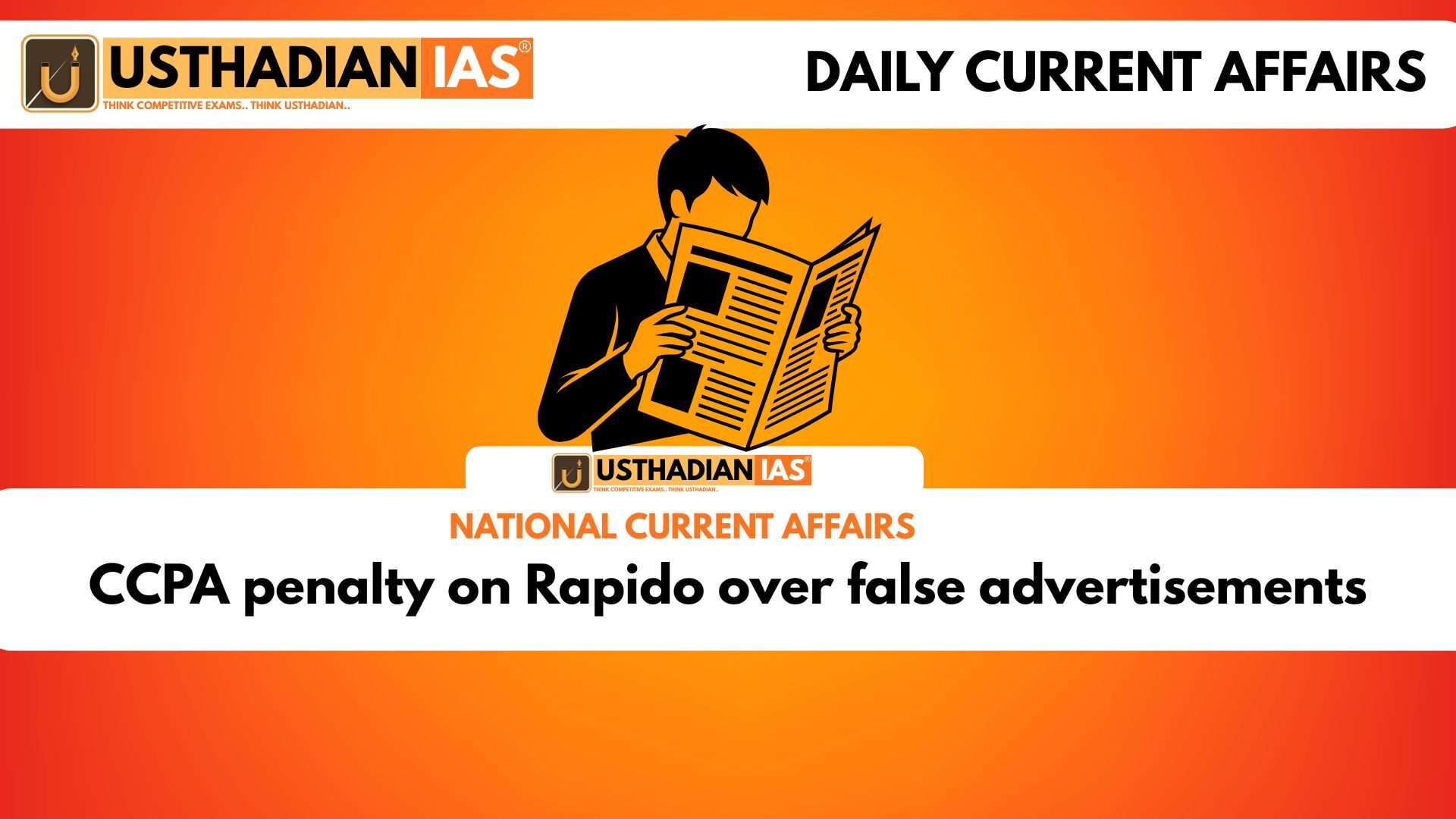CCPA action against Rapido
CCPA penalty on Rapido over false advertisements: The Central Consumer Protection Authority (CCPA) has imposed a fine on Rapido, the bike-taxi and auto service aggregator, for running advertisements that were found to be false and deceptive. The claims such as “Auto in 5 minutes or get ₹50” and “Guaranteed Auto” could not be substantiated, making them unfair to consumers.
Static GK fact: The Consumer Protection Act, 2019 officially came into effect on July 20, 2020, replacing the 1986 Act.
Ethical violations in misleading ads
Such advertisements infringe the right to information, choice, and safety of consumers. They create a false impression of assured service which directly compromises fairness in the market. A famous example is the Red Bull campaign, which was penalized for exaggerating its performance claims.
Utilitarian and Kantian perspectives
From a utilitarian lens, the short-term profit for companies through misleading ads is outweighed by the long-term harm to society, including financial losses and environmental damage. The Volkswagen “clean diesel” case is a striking example where consumers and the environment suffered.
On the other hand, Kant’s categorical imperative highlights that consumers are treated merely as a tool for revenue when misled, which goes against the principle of respecting human dignity.
Social and safety implications
Deceptive advertisements also reinforce harmful stereotypes and can even risk public health. The Fair & Lovely commercials promoted color-based prejudice by equating fairness with success. Similarly, Johnson’s Baby Powder faced scrutiny for continuing promotions despite safety-related concerns.
Static GK Tip: The Advertising Standards Council of India (ASCI) functions as a voluntary regulator to monitor misleading and unethical ads.
Mill’s harm principle
John Stuart Mill argued that liberty in speech and trade is acceptable only until it harms others. Misleading advertising fails this test since it creates direct disadvantages for consumers.
Legal safeguards in India
The Consumer Protection Act, 2019 gives the CCPA authority to take strict action against misleading claims.
The CCPA Guidelines for Prevention of Misleading Advertisements, 2022 specifically outline advertiser obligations.
The Food Safety and Standards Act, 2006 prescribes penalties for false claims in food marketing.
The Drugs and Magic Remedies Act, 1954 prevents promotions of products with unproven or magical benefits.
Static GK fact: The concept of “caveat emptor” (let the buyer beware) has been replaced by a stronger consumer rights regime under modern laws.
Static Usthadian Current Affairs Table
CCPA penalty on Rapido over false advertisements:
| Topic | Detail |
| Authority | Central Consumer Protection Authority (CCPA) |
| Case | Rapido misleading advertisement penalty |
| Key Slogans | “Auto in 5 min or get ₹50”, “Guaranteed Auto” |
| Consumer Rights Violated | Right to be informed, right to choose, right to safety |
| Ethical Theories | Utilitarianism, Kantian ethics, Mill’s harm principle |
| Major Examples | Red Bull, Volkswagen, Fair & Lovely, Johnson’s Baby Powder |
| Legal Framework | Consumer Protection Act 2019 |
| Guidelines | CCPA Guidelines for Prevention of Misleading Advertisements 2022 |
| Other Acts | FSS Act 2006, Drugs and Magic Remedies Act 1954 |
| Regulatory Body | Advertising Standards Council of India (ASCI) |








